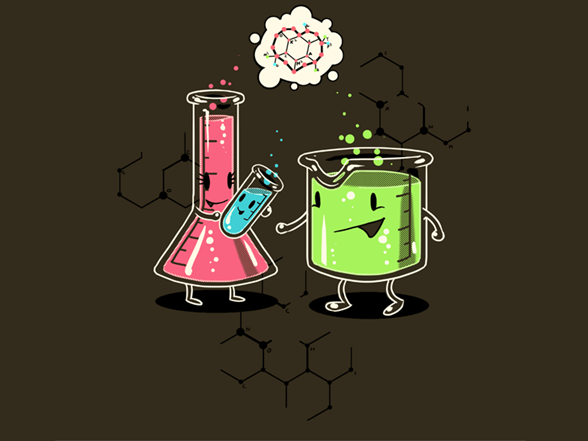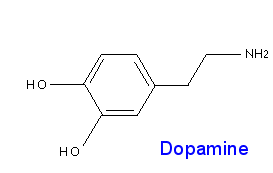We often tend to think of chemistry as something that only happens in external materials or processes. But there are a lot of reactions and chemical processes that also occur inside the human body.
Source

Some of these processes range from the cognitive reactions that occur in our brain, to obtaining energy through ATP (adenosine triphosphate).
But chemistry also intervenes in other reactions and processes within our body, which in principle we would not believe. These processes in which it intervenes is what we call emotions and feelings.
Then I will list a series of emotions, explaining that neurotransmitters or hormones act on each emotion. And explaining carefully the process carried out.
First of all, we must make clear the difference between neurotransmitter and hormone so as not to confuse them, since they are very different. The difference is: when a neurotransmitter is released, it only goes to one type of cell, the neurons. What information is sent through synapses? And the hormones communicate with other cells, no matter where they are, traveling through the bloodstream.
Source

NOTE: The synapse begins with a chemical discharge that is transformed into an electric current, when it reaches the end of the axon of the next neuron, said neuron secretes the so-called neurotransmitters, which are placed between the neuron that emits the current and the one that receives (synaptic space). And the neurotransmitter will already be in charge of transmitting the information.
EMOTIONS AND FEATURES
Let's talk specifically about the 5 basic emotions and feelings, which I list below:
- JOY
Joy is produced by a neurotransmitter called dopamine. This neurotransmitter supplies the feelings of reinforcement and compensation, which make us have this state of mind. Low levels of dopamine, are related to a decrease in our sociability. Not only is it a neurotransmitter, but it is also a neurohormone. That is, it is poured directly into the synaptic space. And it is produced in the hypothalamus. Its name is 4- (2-aminoethyl) benzene-1,2-diol.
Source

- LOVE
Love, the feeling of love occurs when you join dopamine and oxytocin (left), which is a hormone that is produced in the pituitary gland (This molecule is already known as the molecule of love or aphrodisiac.) This hormone It works just like a neurotransmitter. Just as dopamine also has a function in social relationships, but it is also related to pleasure, orgasm, and feelings of generosity and trust. Its formula is C43-H66-N12-S2.
Source

- HATE
The accumulation of hate is what would produce anger. And hatred comes, not produced but yes depending on the levels in our body of the neurotransmitter serotonin. This neurotransmitter works as an inhibitor of anger, body temperature, anger, and aggression. It also works as a regulator of sexual desire along with dopamine. That is why a low level of serotonin can lead to problems of anger or aggression. Its chemical name is 5-hydroxytryptamine.
Source

- SADNESS
A substance called norepinephrine (also called norepinephrine) is responsible for sadness.
function as a hormone or as a neurotransmitter. Noradrenaline
It is responsible for keeping us alert to get away from danger, activates our natural instinct. But it also has an important role in our states of concern. A low level of noradrenaline can produce Lack of attention, poor ability to concentrate and depression.
Its name is 4 - [(1R) -2-amino-1-hydroxyethyl] benzene-1,2-diol.
Source

- FEAR
In fear intervene dopamine, serotonin, and noradrenaline. The mixture of these three neurotransmitters and their influence is what makes us feel afraid. The fact that serotonin intervenes in dopamine and noradrenaline also produces a sense of anguish and anxiety.
In short, we can say that the chemistry that occurs in the substances that are in our body is very important and essential to be able to express ourselves. Since without it we could not have feelings or emotions.
References.
- https://experiencelife.com/article/emotional-biochemistry/
- https://prezi.com/gbohft7csj5a/chemistry-of-emotions/
- https://examinedexistence.com/what-is-dopamine-and-what-is-its-function/
- https://en.wikiversity.org/wiki/Motivation_and_emotion/Book/2017/Neurotransmitters_and_emotion
- http://www.synapticpotential.com/brain/serotonin-multifaceted-chemical/
why love (formula) is so complicated?! :)